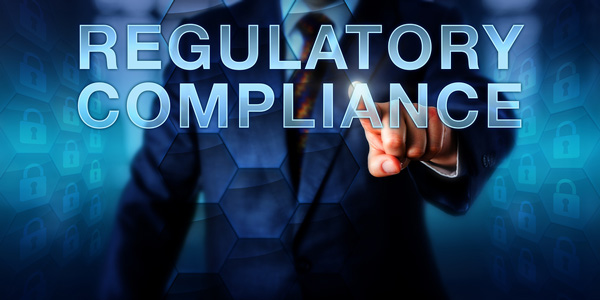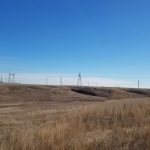Gas Pipeline Leak Regulations Concerning Leak Surveys
Linc Energy Systems conducts gas leak surveys on both natural gas distribution and transmission pipelines which are required by the gas pipeline leak regulations (DOT/PHMSA). Here we share the regulations concerning leak surveys.
Looking for a contractor to perform your leak surveys? Inquire here!
Gas Pipeline Leak Regulations
 Natural gas pipelines run underground and are for the most part, invisible to the public. The 1968 Natural Gas Pipeline Safety Act empowers the Department of Transportation (DOT) to regulate pipeline transportation of flammable, toxic, or corrosive gases as well as the transportation and storage of liquefied natural gas (LNG). Over the years, there have been increasing incidents relating to the deterioration of our pipelines. The U.S. government grew weary of the leaking pipes as being the source of many explosions, and people getting hurt or killed. The implemented regulations have been modified to address the growing concern with aging pipelines.
Natural gas pipelines run underground and are for the most part, invisible to the public. The 1968 Natural Gas Pipeline Safety Act empowers the Department of Transportation (DOT) to regulate pipeline transportation of flammable, toxic, or corrosive gases as well as the transportation and storage of liquefied natural gas (LNG). Over the years, there have been increasing incidents relating to the deterioration of our pipelines. The U.S. government grew weary of the leaking pipes as being the source of many explosions, and people getting hurt or killed. The implemented regulations have been modified to address the growing concern with aging pipelines.
As part of regulations, the underground pipes are required to be surveyed, maintained and appropriately documented. This applies to all gas lines, whether transmission or distribution, and whether public or private.
What is a leak survey?
The gas leak survey is the actual work of investigating the lines to identify all potential leaks. The regulations require that pipelines be surveyed for leaks on a particular frequency determined by the number of people that dwell in the area of the line or the number of buildings.
The rules (49 CFR Sec. 192.723) for distribution lines in business districts require leakage surveys at intervals of once a year, not exceeding 15 months. For lines outside the business district, they must be surveyed as needed, but at least once every five years. If a distribution line is not cathodically protected then, the line must be surveyed once every three years.
The rule (49 CFR Sec. 192.706) for transmission lines require leakage surveys once per year, not exceeding 15 months. However, if the gas is un-odorized, leak surveys with leak detection equipment must be conducted in frequencies depending on their area classification. In Class 3 locations, they must be performed twice a year, not exceeding 7-1/2 months, and Class 4 sites at least four times each year, yet never exceeding 4-1/2 months.
Class locations – 49 CFR § 192.5
- Class 1 – Any location that has ten or fewer buildings intended for human occupancy.
- Class 2 – Any location that has more than ten but fewer than 46 buildings intended for human occupancy.
- Class 3 – Any location that has 46 or more buildings intended for human occupancy; or an area where the pipeline lies within 100 yards (91 meters) of either a building or a small, well-defined outside area that is occupied by 20 or more persons on at least five days a week for ten weeks in any 12-month period.
- Class 4 – Any location where buildings with four or more stories above ground are prevalent.
Gas Leak Grades
When surveying, the technician grades a leak into one of three classifications:
- Grade 1 leak is a leak representing an existing or likely hazard to people or property and requires an immediate repair or continuous action until the conditions are no longer hazardous.
- Grade 2 leak is a situation where the leak is non-hazardous at the time of detection but warrants a scheduled repair based on a probable future hazard if left unattended.
- Grade 3 leak is considered non-hazardous at the time of discovery and is reasonably expected to remain non-hazardous.
Gas Leak Survey Companies
Gas leak surveys are part of our service offerings and help many facilities keep in compliance. If you would like more information on we can assist you with your next leak survey, call us at (303) 697-6701. Alternatively, request a quote now.
Reference
49 CFR 192.5 – Class locations. | US Law | LII / Legal … (10/19/2016). Retrieved from https://www.law.cornell.edu/cfr/text/49/192.5



Hello Randy. I recently purchased some property here in south Mississippi with a pipeline running through it. I wasn’t really concerned until I found out that it carries un odorized natural gas at about 900 psi. I have 6 kids that love to roam the property of 80 acres. I’m worried now that my family is at risk living here. Your thoughts please.
Hi, Wayne!
Thanks for reaching out. First, please know that having a pipeline on your property does not represent a reason to panic. If it were my property, I would reach out to the local utility company that owns the pipeline and request if they have a gas leak survey on record. If they do not, or they are unresponsive contact your local PUC/Public Service Commission and request the survey results.
Randy,
I was wondering if there is a reason to classify an above ground leak as a 2 if you believe it should be scheduled for repair.i am getting flack from the operating company because they only want them traded as 3’s or grade one leaks? They said they don’t fix the grade three leaks so why grade them at all. Your thoughts pleasre
Randy,
I was wondering if there is a reason to classify an above ground leak as a 2 if you believe it should be scheduled for repair.i am getting flack from the operating company because they only want them traded as 3’s or grade one leaks? They said they don’t fix the grade three leaks so why grade them at all. Your thoughts please.